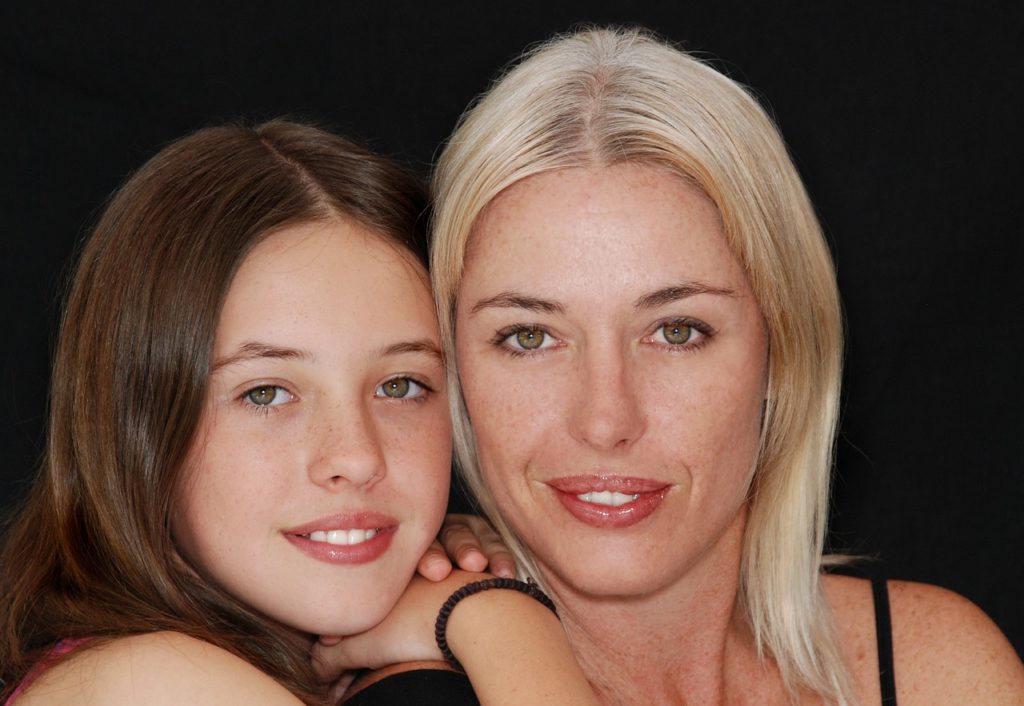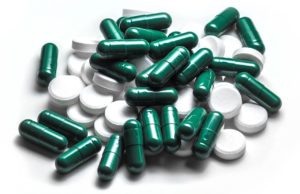
Oxycontin is a drug that was developed several decades ago as a painkiller that lasts for 12 hours, which was double the duration of other pain medications at that time. Even with the drug boasting 12-hour relief, it typically wears off much sooner in most adults [1].
Oxycontin is related to heroin, and withdrawal symptoms can include increased craving for the medicine. Any additional pill abuse can lead to overdose or death, according to clinical trials at Purdue [1].
When a person experiences a gap in dosing, the body can show signs of body aches, nausea, anxiety and numerous symptoms of withdrawal. When Oxycontin is being used for pain relief, euphoria sets in with the pain medication use, and can increase the likelihood of addiction.
Oxycontin & Addicted Moms
Half of opioid abusers in the U.S. are women [2]. Many develop an addiction to heavy-duty pain prescriptions medications.

More commonly in today's society, middle-class women are abusing medications to cope with daily life or overworked spouses. Most see physicians for pain management and end up being addicted to the medication due to its strong effects and highly habit-forming properties.
Many women report the use of Oxycontin as a jolt of energy that helps subdue anxiety and depression, and cope with the stressors of daily life [2].
Individuals tend to become addicted to prescription painkillers either as a teen finding pills and being curious about trying them, or those who are prescribed Oxycontin through their physician for physical pain complaints [3].
Often, a typical dose is 20mg for an individual struggling with pain, but the body begins to adapt to the drug and physicians will typically increase the dose to accommodate the patient’s increased pain. Increased doses can lead to continued drug-seeking behaviors, as well as impaired thinking and behavior by the patient.
Many women take Oxycontin to manage the everyday stressor of marriage, parenthood, and keeping up a “perfect” idea among peers. It can become something that helps with energy, numbs a bit of the negative effects of life’s numerous challenges, and is extremely hard to stop.
The withdrawal effects of Oxycontin are intense, and many women need to go on withdrawal medication to reduce the effects of the drug [3]. It can take months and even years to fully cease abuse of prescription painkillers, and many sufferers learn to live without painkillers out of fear of becoming addicted again.
The New Motherhood
Many moms tend to go to their physician or chiropractor for pain relief due to an injury. When prescribed Oxycontin or other prescription painkillers, they become addicted. As dependence on the drug grows, behaviors such as doctor hopping, lying to get additional prescriptions, and even stealing can occur.

Often, addicted moms report fear of running out of the drug and lie to themselves about their secretive addiction [4].
Over 18 million women over the age of 26 are addicted to prescription pain medications like Oxycontin [4]. Oxycontin abuse knows no socioeconomic status, race, ethnicity or age group. It can affect everyone.
Interestingly enough, prescription drug abuse is increasing while addictions to substances and alcohol are decreasing [4]. One theory for why this trend is being seen is that prescription drugs are more readily available and circulated worldwide. With higher demands for prescription painkillers, more is being manufactured and prescribed.
Another hypothesis with high demand and supply is that addicted moms share drugs. According to a report by the Centers for Disease Control and Prevention (CDC), nearly 29 percent of women report borrowing or sharing prescription pain medications [4].
Many people feel that prescription meds are not harmful. They see heroin as dangerous, but prescription pain medications are safe because they are approved by the FDA or prescribed by a doctor.

Pain medications work within the brain and release dopamine. As tolerance increases, so does the dosage needed to achieve the same effect. If a person does stop taking the drug, then withdrawal effects can be intense and include sweating, nausea, and violent shaking [4].
There seem to be risk factors that increase a woman's chance of becoming addicted to Oxycontin. Depression, bipolar disorder, prior drug or alcohol use, a family history of alcoholism or drug use, past or current trauma, and the stress of motherhood are all contributing factors.
Many women are exhausted from holding their families together, scheduling practices, doctors appointments, school events and caring for others prior to themselves. If a mother works outside of the home, their job is doubled, as there is little downtime when coming home from work. Most mothers are responsible for cooking, cleaning, and caring for their children, and it leaves them feeling overwhelmed and overworked.
Treatment for Prescription Painkiller Abuse
Treatment is available for moms who are addicted to prescription painkillers. A mom is able to find strength to overcome an addiction. Many addicted moms report after treatment that they had to recover for their children and to be able to stay with them.
Many treatment facilities have programs that include spouses and children, like the Betty Ford Center in California, which offers group sessions for children aged 7 to 12 years even if their parents are not enrolled in the center [4].
In conclusion, it is common for mothers to become addicted to prescription painkillers, but there are treatment facilities ready and able to offer you recovery.
 About the Author: Libby Lyons is a Licensed Clinical Social Worker and Certified Eating Disorder Specialist (CEDS). Libby has been practicing in the field of eating disorders, addictions, depression, anxiety and other comorbid issues in various agencies. Libby has previously worked as a contractor for the United States Air Force Domestic Violence Program, Saint Louis University Student Health and Counseling, Saint Louis Behavioral Medicine Institute Eating Disorders Program, and has been in Private Practice.
About the Author: Libby Lyons is a Licensed Clinical Social Worker and Certified Eating Disorder Specialist (CEDS). Libby has been practicing in the field of eating disorders, addictions, depression, anxiety and other comorbid issues in various agencies. Libby has previously worked as a contractor for the United States Air Force Domestic Violence Program, Saint Louis University Student Health and Counseling, Saint Louis Behavioral Medicine Institute Eating Disorders Program, and has been in Private Practice.
Libby currently works as a counselor at Fontbonne University and is a Adjunct Professor at Saint Louis University, and is a contributing author for Addiction Hope and Eating Disorder Hope. Libby lives in the St. Louis area with her husband and two daughters. She enjoys spending time with her family, running, and watching movies.
References:
[1]: 'You want a description of hell?' OxyContin's 12-hour problem #InvestigatingOxy. (n.d.). Retrieved June 20, 2017, from http://www.latimes.com/projects/oxycontin-part1/
[2]: Ridley, J. (2015, December 08). I was a respectable, high-functioning junkie. Retrieved June 20, 2017, from http://nypost.com/2015/12/08/i-was-a-perfect-mom-and-wife-and-secretly-addicted-to-opioids/
[3]: Berman, J. (2014, February 24). How A Big Drug Company Inadvertently Got Americans Hooked On Heroin. Retrieved June 20, 2017, from http://www.huffingtonpost.com/2014/02/24/heroin-epidemic_n_4790898.html
[4]: Andrea Barbalich Photo illustrations Dan Saelinger. "Moms on Drugs: The Prescription Pill Epidemic." Parents. Parents, 11 June 2015. Web. 27 June 2017. <http://www.parents.com/parenting/moms/healthy-mom/prescription-drug-addiction/>.
The opinions and views of our guest contributors are shared to provide a broad perspective of addictions. These are not necessarily the views of Addiction Hope, but an effort to offer discussion of various issues by different concerned individuals.
We at Addiction Hope understand that addictions result from a combination of environmental and genetic factors. If you or a loved one are suffering from an addiction, please know that there is hope for you, and seek immediate professional help.
Published on August 18, 2017
Reviewed By: Jacquelyn Ekern, MS, LPC on August 18, 2017.
Published on AddictionHope.com
